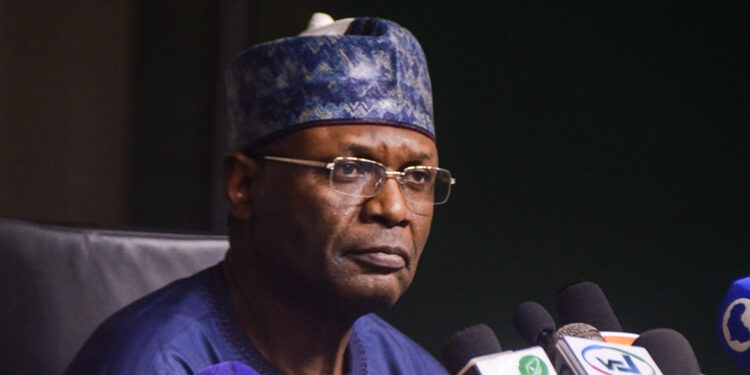The Chairman of the Independent National Electoral Commission (INEC), Professor Mahmood Yakubu, has emphasised the critical need to advance electoral reforms, urging swift action to implement key changes.
Speaking at a retreat with the National Assembly’s Joint Committee on Electoral Matters in Lagos on Monday, Yakubu stressed that further legal and procedural improvements were essential for credible elections.
He pointed to the success of the 2020 electoral reform process, which culminated in the landmark Electoral Act 2022, as proof of how targeted legal updates can modernise elections—but insisted more must be done
He stated, “That effort, among many other initiatives, resulted in the repeal and re-enactment of the Electoral Act 2010 (as amended). The result is the current Electoral Act 2022.”
This reform, according to Yakubu, addressed legal gaps, enhanced technology usage, and incorporated recommendations from past electoral reform committees.
He added, “For us in INEC, the coming together of lawmakers, who also have field experience as practising politicians, and the commission as the election management body saddled with the constitutional responsibility of organising, undertaking and supervising all elections in Nigeria (except the local government elections) is a positive development for electoral reform in Nigeria.”
The INEC chairman noted the importance of collaboration between INEC and lawmakers, who bring valuable political experience to the table.
He noted that such retreats offer a unique opportunity to engage in focused discussions about the challenges of election management, something that cannot be fully achieved in committee rooms.
“We believe that a retreat such as this one provides a focused engagement and a better insight into the challenges of election management beyond what can be achieved in a few hours of public hearing in a Committee Room at the National Assembly,” he said.
A major focus of Yakubu’s speech was the amendment to the Electoral Act that extended the time between party primaries and general elections.
Prior to this change, INEC had only 60 days after primaries to prepare for elections, often leading to delays.
The new amendment, which extended the timeline to 180 days, allowed for improved planning, resulting in the successful conduct of the 2023 general election without any postponements due to logistical issues.
“The solution was to amend the Electoral Act to provide for more time between party primaries and the nomination of candidates on the one hand and the dates fixed for the election on the other,” Yakubu explained.
The INEC chairman also pointed to another historic achievement in the 2023 election: for the first time since Nigeria’s return to democracy in 1999, all election materials, including ballot papers and result sheets, were printed domestically.
This move, which garnered praise from the Chartered Institute of Professional Printers of Nigeria, marked a significant milestone in strengthening local capacity for election management.
“Not a single sheet of paper for the 2023 General Election was printed outside Nigeria,” Yakubu declared.
Looking forward, he called on the National Assembly to act swiftly to finalise the legal framework for future elections.
“I wish to appeal to the National Assembly to expedite action to conclude the electoral legal framework speedily so that the commission will have enough time for implementation,” he said.
He thanked the commission’s development partners for their ongoing support and urged lawmakers to expedite the necessary reforms to allow for adequate implementation time before the next election cycle.
Yakubu concluded by stressing the critical role of a strong legal framework in ensuring the continued improvement of the electoral process and the strengthening of its democracy.








































Discussion about this post